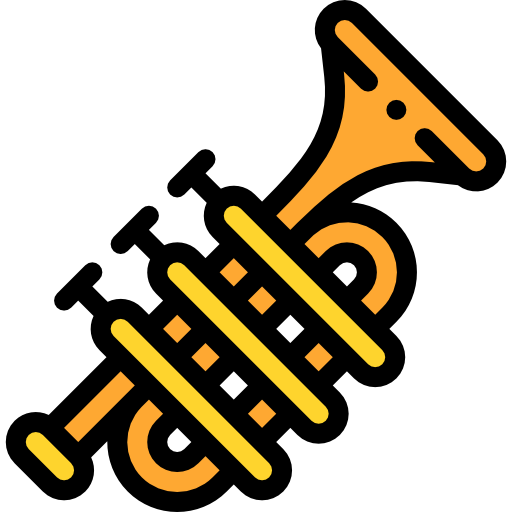
This logo isn't an ad or affiliate link. It's an organization that shares in our mission, and empowered the authors to share their insights in Byte form.
Rumie vets Bytes for compliance with our
Standards.
The organization is responsible for the completeness and reliability of the content.
Learn more
about how Rumie works with partners.
Are you one of the 54% of Americans who plays a musical instrument?
Are you thinking about making a living off of it?

If you said YES, then you may want to consider becoming an orchestral musician!
What Do Orchestral Musicians Do?
Orchestral musicians do much more than what you see on stage.
 This includes:
This includes:
Becoming an expert on their chosen instrument(s)
Become comfortable with sight reading
Spending hours alone practicing
Rehearsing with their orchestra
Performing in various settings (concert halls, outdoor venues, schools, online, etc.)
Contributing to the education of future musicians (like you!)

Skills Needed
To become a successful orchestral musician, you need to develop/have the ability to:
🎶 Play an orchestral instrument (sometimes more than one) with a high degree of effectiveness 📯
🎶 Read sheet music
🎶 Play in many musical styles (classical, jazz, film, operatic, etc.)
🎶 Work alone in practice settings
🎶 Work with others in rehearsals
🎶 Have a strong growth mindset

Quiz
Cory wants to be an orchestral musician. Which qualities/skills will help them succeed? Select all that apply.
Improving through feedback, teaching, and creativity are all skills you'd definitely use as an orchestral musician. Audio-editing skills are NOT a necessary skill for orchestral musicians to have, but may be considered an asset as we dive more into a digital age.
Musicians as Teachers
Orchestral musicians contribute to the education of future musicians in two major ways:

1) In partnership with their orchestra
Creating online tutorial videos
Participating in youth concerts
Acting as youth orchestra coaches
Running masterclasses
2) Private tutor
1-on-1 teaching on specific instrument(s)
Can be online or in-person

The Perks and The Prices
Every career (even the coolest ones) have perks as well as a price you pay for those perks.

The Perks
Fulfill your dream of playing your instrument for a living
Not a boring 9-5 office job
Potential to travel with the orchestra
A good pension
Weeks off
Solid salary (Average $88,595 CAD or $78,618 USD )
The Prices
Expensive cost of instrument(s), upkeep, and private lessons
Very competitive field
Work during evenings, weekends, and holidays
Typically have to live in more urban/expensive areas
Did you know?
Take Action
If you think you'd like to be an orchestral musician:

This Byte has been authored by
Michael Ricciardi
Learning Designer & Secondary school Music Teacher